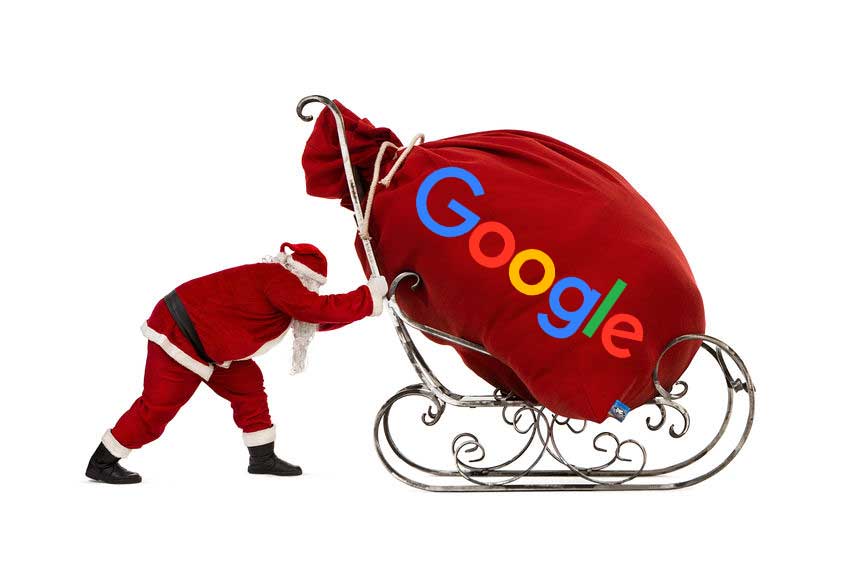At 10:34 am yesterday, Google’s Search Liaison Danny Sullivan announced that the December 2020 Core Update – the 3rd update to Google’s core algorithm this year – would begin rolling out at 1:00 pm.

As is typical, the update should take between 1 and 2 weeks to complete. The most recent data is that the rollout began a bit later than that, but as of 8 am on December 4th, it was well underway.
Will this effect your website?
It’s still too early to know for sure. Early indications about the December 2020 Core Update from SEMRush’s Sensor indicate a high level of volatility with all segments reporting high levels of volatility (between 9.1 and 9.5 on a scale of 10).

Remember, this update is brand new, so it’s going to take several days for enough data to start coming in that we can do a real analysis. But as of now, it looks like all segments are being impacted.

Keep in mind that even if your website is negatively impacted, it doesn’t mean you did anything wrong. Sometimes it just means that Google is changing how it defines “quality”.
What actions can you take?
Be watchful. Pay attention to the impression and ranking data as reported in Google Search Console to see if there are any major fluctuations within the search terms and the pages that your website has historically ranked well for.
Generally speaking, there isn’t a list of specific actions you can take to recover if your website is impacted. There are however a series of questions you can ask yourself as you try and assess your situation. Start here: Re-evaluate your content. Be critical about what you wrote, how it’s written and how your information is sourced. And ask yourself:
- Does the content provide original information, reporting, research, or analysis?
- Does the content provide a substantial, complete, or comprehensive description of the topic?
- Does the content provide insightful analysis or interesting information that is beyond obvious?
- If the content draws on other sources, does it avoid simply copying or rewriting those sources and instead provide substantial additional value and originality?
- Does the headline and/or page title provide a descriptive, helpful summary of the content?
- Does the headline and/or page title avoid being exaggerating or shocking in nature?
- Is this the sort of page you’d want to bookmark, share with a friend, or recommend?
- Would you expect to see this content in or referenced by a printed magazine, encyclopedia, or book?
- Is the content free from spelling or stylistic issues?
- Was the content produced well, or does it appear sloppy or hastily produced?
- Is the content mass-produced by or outsourced to a large number of creators, or spread across a large network of sites, so that individual pages or sites don’t get as much attention or care?
- Does the content have an excessive amount of ads that distract from or interfere with the main content?
- Does content display well for mobile devices when viewed on them?
- Does the content provide substantial value when compared to other pages in search results?
- Does the content seem to be serving the genuine interests of visitors to the site or does it seem to exist solely by someone attempting to guess what might rank well in search engines?
- Does the content present information in a way that makes you want to trust it, such as clear sourcing, evidence of the expertise involved, background about the author, or the site that publishes it, such as through links to an author page or a site’s About page?
- If you researched the site producing the content, would you come away with the impression that it is well-trusted or widely-recognized as an authority on its topic?
- Is this content written by an expert or enthusiast who demonstrably knows the topic well?
- Is the content free from easily-verified factual errors?
- Would you feel comfortable trusting this content for issues relating to your money or your life?
Of course, you can always refer to Google’s Search Quality Rater Guidelines.
Or you can just ask us.







